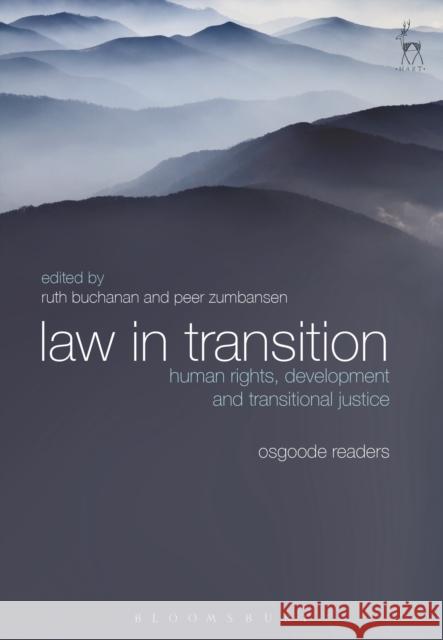Law in Transition » książka
Law in Transition
ISBN-13: 9781509907380 / Angielski / Miękka / 2016 / 372 str.
Now available in paperback Law has become the vehicle by which countries in the 'developing world', including post-conflict states or states undergoing constitutional transformation, must steer the course of social, economic, legal, and political change. Legal mechanisms - in particular, the instruments as well as concepts of human rights - play an increasingly central role in the discourses and practices of both development and transitional justice. These developments can be seen as part of a tendency towards convergence within the wider set of discourses and practices in global governance. While this process of convergence of formerly distinct normative and conceptual fields of theory and practice has been both celebrated and critiqued at the level of theory, the present collection provides a more nuanced and critical account of contemporary developments through a series of studies drawn from a variety of contexts in which human rights advocacy and transitional justice initiatives are colliding with development projects, programmes and objectives. Essays by many of the leading experts writing at the intersection of development, rights and transitional justice studies. Notwithstanding the theoretical and practical challenges presented by the complex interaction of these fields, the premise of the book is that it is only through engagement and dialogue among hitherto distinct fields of scholarship and practice that a better understanding of the institutional and normative issues arising in contemporary law and development and transitional justice contexts will be possible. The book is designed for research and teaching at both undergraduate and graduate levels. *** "An extraordinary collection of essays that illuminate the nature of law in today's fragmented and uneven globalized world, by situating the stakes of law in the intersection between the fields of human rights, development and transitional justice. Unusual for its breadth and the quality of scholary contributions from many who are top scholars in their fields, this volume is one of the first that attempts to weave the three specialized fields, and succeeds brilliantly. For anyone working in the fields of development studies, human rights or transitional justice, this volume is a wake-up call to abandon their preconceived ideas and frames and aim for a conceptual and programmatic restart." --Professor Balakrishnan Rajagopal, Ford International Associate Professor of Law and Development, MIT (Series: Osgoode Readers, Vol. 3) Subject: Criminal Law, Human Rights Law, International Law, Comparative Law, International Trade Law, Public Law, Socio-Legal Studies]











